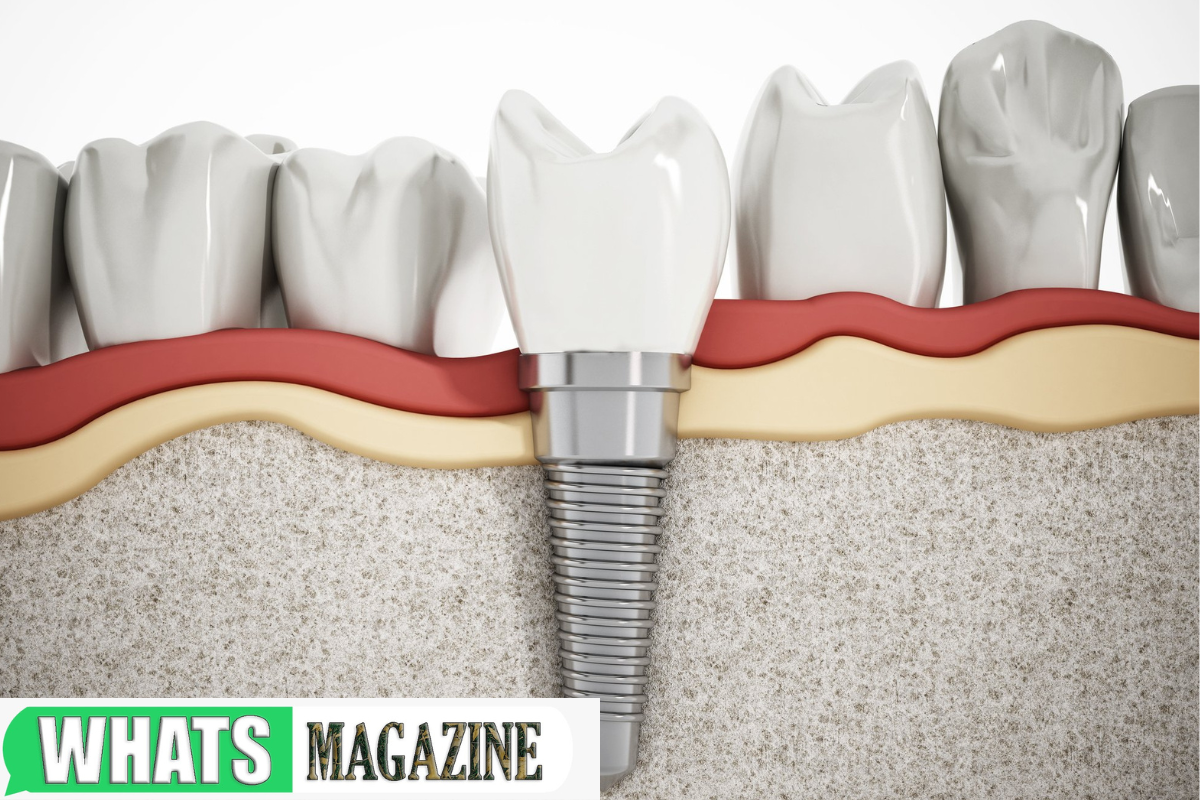Do you have tooth loss or lacking teeth? Are you weighing the pros and cons of dental implants?
There’s no denying that these are a great way to replace missing teeth. And they can stay in your mouth forever if you take care of them. However, it’s always helpful to do your research on the healing process before making a decision.
Assuming you’re feeling overpowered, you’re perfectly positioned. Here are the most common myths and facts about the dental implant healing stages. Let’s get into it!
In this article
What Are Dental Implants?
Dental implants are a restorative and cosmetic dentistry procedure used to replace missing teeth. They are small, screw-like posts made of titanium, medical-grade metals, or ceramic that are surgically inserted into the jawbone underneath the gum line.
The implant acts like a tooth root, providing a secure point of attachment for
- permanent dental bridge
- denture
- dental crown
The surgery is typically done under local anesthesia, and patients can return to work with light activity the day after surgery. Also, their success rates are extremely high and the implants can last a lifetime with proper care and regular dental visits.
In addition, dental implants offer a variety of benefits such as
- improved appearance
- a secure fit
- increased comfort
Many patients choose them over other options because they feel more lifelike and natural than a bridge or denture can provide.
1. The Healing Process Involves a Lot of Pain
One of the most commonly discussed myths is that the healing process can be very painful. This is simply not true. While some mild discomfort may be experienced initially, this is typically short-lived and dissipates quickly.
After the implant is placed, the bone cells will integrate with the titanium post, which is known as osseointegration. Some patients heal within two to four months after implant placement, while others may take as long as six months or longer.
Additionally, some patients even find that they can resume certain activities almost immediately following the placement. However, some may experience:
- slight itching
- swelling
- inflammation
Furthermore, once the bone begins to fuse around the implant, there may be mild sensitivity. Yet, this can often be managed with over-the-counter pain medications prescribed by your dentist.
2. Implants Don’t Match the Existing Teeth
Depending on the type of implant and procedure used, implantation can often be made to match existing teeth to provide a natural-looking smile. It may even be possible to add extra teeth to fill in any gaps.
In addition, the implant is colored and shaded to match the wearer’s actual teeth so it will look completely genuine. Additionally, they are custom-made to perfectly fit in your mouth together with your existing teeth.
These dental implant solutions will guarantee a perfect match for your real teeth in terms of shape, color, and size. That’s why it is important to discuss this with your dentist before the procedure to make sure you’ll achieve the desired results.
3. Dental Implants Heal Quickly
In reality, dental implant healing stages involve a lengthy process before it is secure and able to perform its function. Lower jaw implants may require up to six months of healing while upper jaw implants may require up to twelve months.
Depending on the individual, the healing process may be longer or shorter than average. The truth is that dental implants take time to heal and be secure. The length of each stage, however, can vary on several factors including:
- The location of the implant
- The size of the implant
- any additional treatments
Overall, the healing stage may tend to be quick and straightforward, but the specifics can depend on individual circumstances. When in doubt, discuss the healing process with your dentist or oral health care provider before making any decisions.
4. Implants Don’t Require Maintenance
Dental implants will require ongoing maintenance throughout their lifetime, just like natural teeth. Similarly, the idea that they will require less maintenance than natural teeth is also false.
While implants are designed to last longer than natural teeth, they still need regular check-ups and cleanings with a dentist. They still need to be evaluated regularly to ensure that they are properly fused and the surrounding tissue is healthy.
As long as the patient follows the dentist’s instructions, the implant will remain safe and secure for years in the future. With proper maintenance and regular visits to the dentist, dental implants can provide a lifetime of reliable function.
5. Tooth Loss Affects Only the Implant Site
The healing stages can affect much more than just the implant site. During this time, patients may experience bleeding, minor infections, and changes in taste and smell during the healing process.
The gums surrounding the implant may become sensitive and sore, requiring special care for the area. As the healing progresses, the gums should firm up, and the implant should be more stable.
Having said that, it is always important to follow the instructions of your dentist regarding general aftercare and homecare for your dental implants.
Key Differences Between Dental Crowns and Implants
Dental crowns and dental implants are two of the most common treatments used to restore damaged or missing teeth. Generally speaking, they are used to protect, strengthen, and enhance existing teeth.
Additionally, they cover the entire visible portion of a tooth above the gum line and provide support for the remaining natural tooth structure. On the other hand, dental implants are a much more intensive process.
It involves a surgically implanted post being embedded into the jaw bone and artificial teeth mounted on it. However, crowns tend to be more affordable and arguably a more conservative procedure than implants.
Yet, implants have the advantage of being more permanent and stronger. It is important to discuss more about dental crowns and implants with your dentist to know which option is best for you.
The Most Common Myths and Facts About Dental Implant Healing Stages
Dental implants can be an ideal solution for many people who have aesthetic problems with their teeth. However, it’s important to understand the myths and facts surrounding dental implant healing stages before undergoing treatment.
Don’t hesitate to ask your dentist questions to get the most accurate and up-to-date information on dental implant solutions. With the right research and planning you can achieve the perfect smile.
Did you find this article helpful? Look at the remainder of our blog now!








